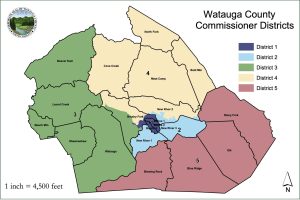OPINION: App State jumps on the meatless train
October 4, 2019
Growing up in a vegetarian family, it was always a struggle to eat on road trips. We would try to pack our own lunches for the road, but in the excitement of getting on the road, that didn’t always happen. So, a lot of the time, we were left with fast food, and often, the meat-free options were not good. I’ve lost count of how many Taco Bell bean burritos I’ve eaten on the way to the beach.
Lately, the fast-food industry has changed, with companies developing and heavily marketing meat-free options. Maybe it’s a public opinion shift or an increased public interest in environmentalism, but one thing is certain — from Burger King to White Castle to KFC, fast food companies want customers to try their vegetarian options.
This summer, Burger King introduced the Impossible Whopper in over 7,000 stores. Chris Finazzo, president of the North American Burger King Corporation told Business Wire they have “heard great feedback and know the Impossible Whopper appeals to both current guests who are already big fans of the Whopper sandwich, as well as new guests who are exited about this new option.”
KFC has introduced its Beyond Fried Chicken, which reportedly sold out in less than five hours at the Atlanta test location. White Castle started the trend late last year when it introduced Impossible Sliders.
Impossible Burgers are made using a special ingredient from fermented soy beans called heme. Impossible Foods’ products to closely mimic meat in taste and texture, encouraging more people to eat less meat, a central tenet of Impossible Foods’ philosophy.
Its mission statement states: “We’re making meat from plants so that we never have to use animals again. That way, we can eat all the meat we want, for as long as we want. And save the best planet in the known universe.”
Lately, the effects of cutting meat of of diets has seen increased interest. The Environmental Working Group, an American activist group advocating for decreasing impact in the agricultural and farming industries, said the production and distribution of meat uses large amounts of pesticides, fossil fuels, water and other materials and contributes large amounts of greenhouse gases and other toxic chemicals to the environment. It takes 1,799 gallons of water to make one pound of beef. By cutting out just one pound of beef a week from a diet, it can save thousands of gallons of water.
Cutting out meat doesn’t just help the planet, it also has health benefits. Those who eat less meat consume fewer calories, weigh less and have a lower risk of heart disease than their meat-eating counterparts, according to Mayo Clinic, a top-ranked non-profit academic health system.
Now, the Impossible Burger is coming to App State’s dining hall. Before coming to App State, I admired the school’s commitment to lowering its environmental impact. The Impossible Burger is a great example.
It’s a big step for the school to take this opportunity to offer the option not only for vegetarian students, but also meat-eating students looking to lessen their impact, or just wanting to try something new. With the growing industry of meat-free alternatives, it’s easier now than ever to lower beef intake, especially for the everyday consumer who might not seek out a veggie burger otherwise.













Siddhi Tomar • Jul 22, 2020 at 1:05 am
Thanks